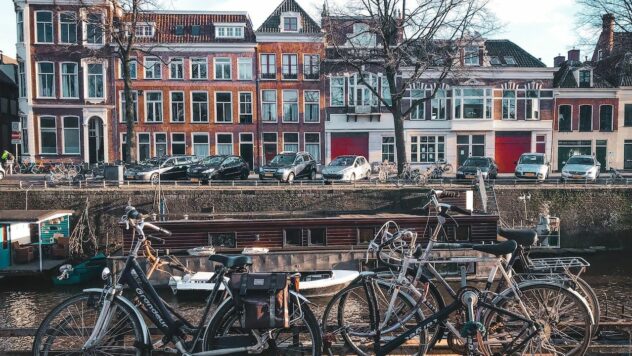Ukrainians are increasingly choosing Western European countries for their stay and work. According to Eurostat, the largest absolute increase in Ukrainian citizens with temporary protection in September was observed in Germany, the Netherlands and Ireland, compared to August.
Besides Germany, Ukrainians are interested in the Netherlands due to higher earnings than in Eastern Europe.
Experts from the EWL Migration Platform told us what you should know about the features of legalizing stay and employment in the Netherlands.
Currently watching
- Features of legalization in the Netherlands
- Where and what kind of work is there for Ukrainians in the Netherlands?
- Age restrictions for working in the Netherlands
- Why you should have a driver's license
- Competition with the Poles
Features of legalization in the Netherlands
The legalization process in the Netherlands includes obtaining a BSN (identification number) and temporary protection (a passport sticker from the IND – Dutch Immigration and Naturalization Service).
This process can take up to a month. After this, Ukrainians have free access to the labor market and can find employment without additional permits.
Temporary protection status in the Netherlands can be obtained by citizens who resided in Ukraine before November 26, 2021. Also Ukrainians who are legally present in the Netherlands at the time of the start of the full-scale invasion.
It is important that as of 22 February 2022 there are no open work visas or existing residence permits in other European Union countries.
Where and what kind of work is there for Ukrainians in the Netherlands?
There are more than 200 thousand job offers on the market, but most require language skills at level B1 and a driver's license. The country lacks IT and logistics specialists, engineers, nurses, financiers, auto mechanics and others.
Want to rest? Come to Facti.GAMES!
Industries that are open to workers without knowledge of the language are mainly agriculture (work in the fields and greenhouses), food industry (work in meat processing plants), and in warehouses.
Such vacancies involve simple physical work with an hourly wage of €12-13 gross (before taxes).
In addition, it is worth considering that foreign workers often have to pay rent themselves, around €300-450 per month. The search process may take some time due to the housing shortage in the country.
Age restrictions for working in the Netherlands
The Netherlands is an aging society, with people often remaining professionally active up to 75 years of age. This means there are many older candidates in the market. Therefore, employers impose certain age restrictions for foreigners.
— Most vacancies for foreigners have restrictions of up to 50 years, often up to 45 years. Therefore, Ukrainians over 45 years of age, who left for the Netherlands at the beginning of a full-scale war, have difficulty finding work, return to Ukraine or go to other EU countries,” said Margarita Nesterenko, head of international recruitment at the EWL Migration Platform.
Why you should have a driver's license
Having a driver's license is another nuance that should be taken into account when looking for work in the Netherlands.
— Often Ukrainians, especially women, do not have a license or do not dare to drive a car abroad. But many employers solve the issue of transporting employees from their place of residence to work by providing them with a car, explained Margarita Nesterenko.
Often Ukrainians who have a driver’s license team up and go to work with colleagues. As an alternative, bicycles are sometimes provided for unlicensed workers (for a fee). It is worth considering that the distance from the place of work to housing is usually 8-10 km or more.
Competition with the Poles
The Netherlands, as a country with low unemployment, also has a strong tradition of employing foreigners, but has a different approach than Eastern European countries or Germany.
Many jobs are open to EU citizens, mainly Poles, who make up the largest group of migrant workers there.
Poles have been coming to the Netherlands for years: many speak English and Dutch, so they are competitors for Ukrainians on the labor market.

